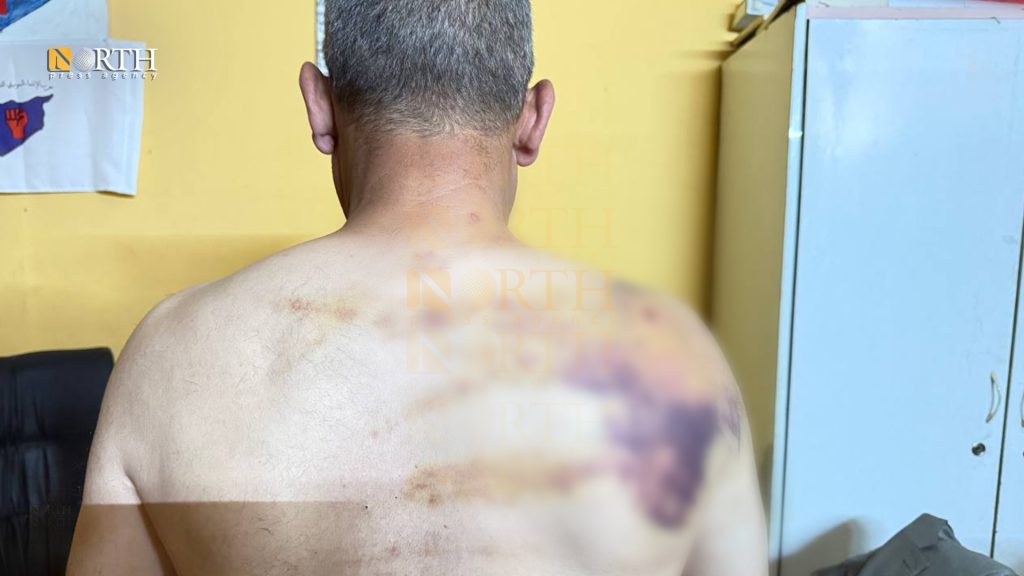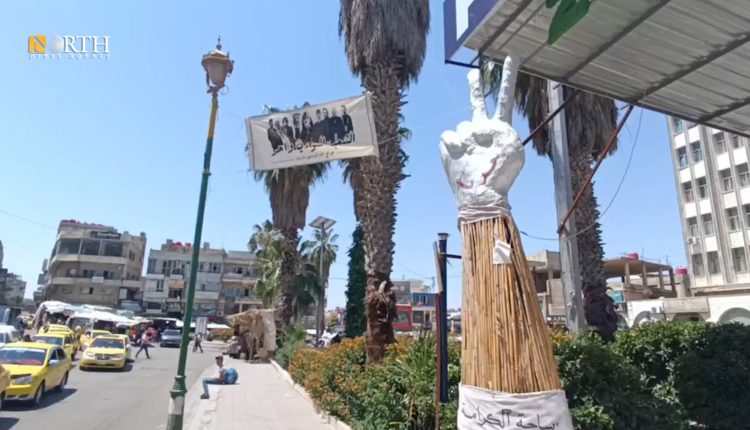Druze Politician Details Detention and Abuse by Syrian Government Security
By Kardo Roj
SUWAYDA, Syria (North Press) – Raja Damqasi, Secretary-General of the Syrian Democratic Affiliation Party in southern Syria’s Suwayda, revealed on Tuesday new details surrounding the arrest and reported mistreatment of civil society activists detained last week by Syrian government forces near Homs while en route to the city of Raqqa.
In an interview with North Press, Damqasi said that the group, which included around 20 political and civic activists—both men and women—was subjected to “severe verbal and physical abuse, as well as threats of execution,” after being stopped by a security checkpoint affiliated with Syria’s General Security Directorate under the Ministry of Interior.
The delegation was heading to Raqqa in northeast Syria to participate in a series of lectures related to governance and civic empowerment—programs unrelated to military activity, according to Damqasi.
The incident reportedly began at a checkpoint near the al-Waer district of Homs, where the bus carrying the group was stopped and passengers were questioned. “They started separating individuals based on sectarian identity,” Damqasi said, noting that members from the Druze community, particularly from Suwayda, were singled out and subjected to prolonged beatings.
Damqasi stated that several members were later transferred to a detention facility in Idlib, where conditions remained harsh. “The abuse continued during transport and upon arrival. There were threats of liquidation, and detainees were isolated from legal counsel or contact with families,” he said.
This testimony aligns with earlier remarks made to North Press by activist and engineer Ghada Shaarani, who also cited sectarian abuse and described the confiscation of personal belongings, including mobile phones and money.

According to Damqasi, the group’s plight drew attention from both domestic and international contacts, including associates of the party and civil society partners in the United States. “This support played a decisive role in altering the course of their detention,” he said.
He added that mediation efforts—particularly by a personal contact in Idlib—prompted local authorities to reopen the investigation and consider their immediate release.
The detained group was later allowed to meet with Mustafa al-Bakkour, the acting governor of Idlib. During this meeting, they expressed intentions to file formal complaints with both Syrian judicial authorities and international human rights bodies, including the United Nations.
The arrests underscore growing concern over the erosion of civic space in government-held areas of Syria, particularly for delegations engaging in dialogue or training with counterparts in regions outside Damascus’s control.
While the civil society event in Raqqa was to be held under the auspices of institutions linked with the Autonomous Administration of North and East Syria (AANES), no official connection between the detainees and any political or military body was made public.
The AANES and its security forces, the Syrian Democratic Forces (SDF), continue to administer northeast Syria with relative autonomy, facilitating a number of civil governance programs supported by local and international NGOs. The incident sheds light on the risks activists face when moving between regions across fragmented frontlines.
Damqasi emphasized the group’s intent to pursue justice through legal channels. “We are consulting legal experts and preparing to take this case to Syrian courts as well as international institutions,” he told North Press.
He added that the party views the incident as “part of a broader pattern of suppressing civil voices,” particularly those advocating for decentralization, civil governance, or reconciliation initiatives across regions.
As Syria continues to grapple with internal divisions and governance disputes, the treatment of this delegation raises broader questions about the freedom of movement and safety for civil actors navigating the country’s fragmented political geography.

